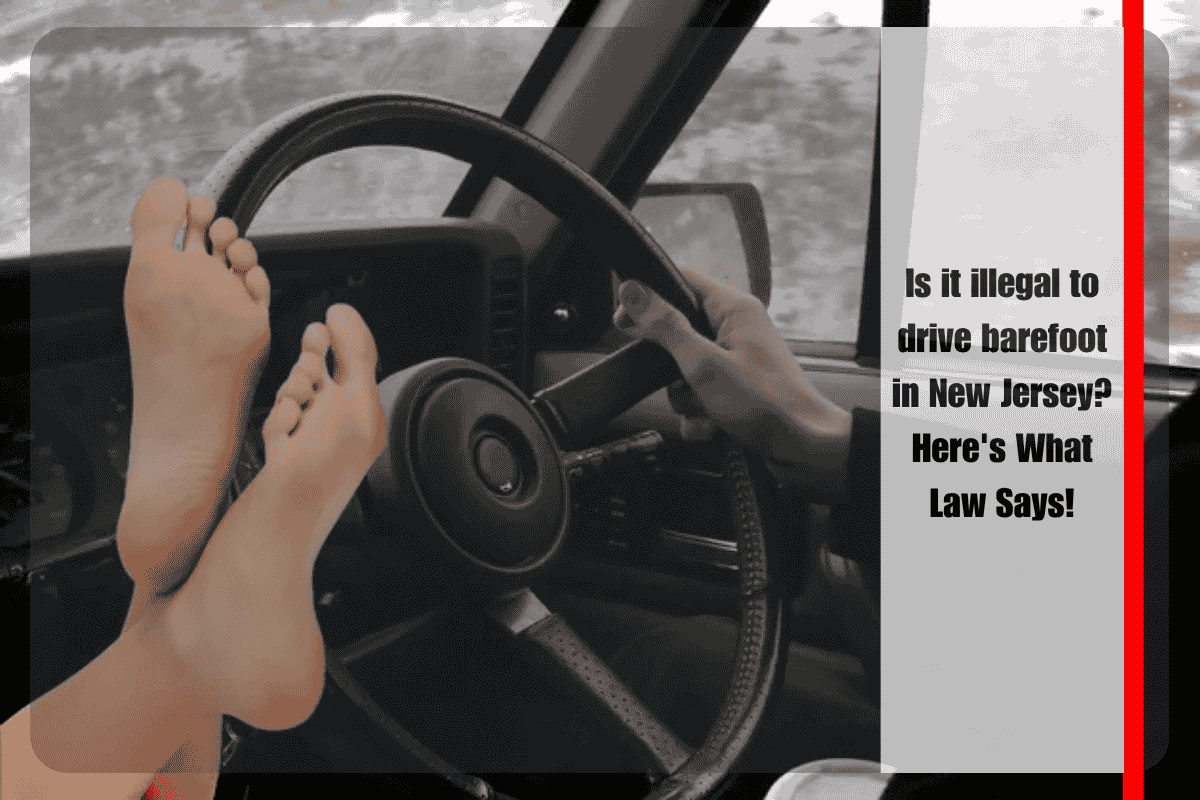There is a persistent myth in New Jersey that driving barefoot is illegal, often passed down by parents or repeated by well-meaning friends and relatives. However, this belief is not supported by the law. In reality, there is no law in New Jersey that prohibits driving a car without shoes. This has been confirmed by multiple sources, including legal experts and local authorities.
The misconception that barefoot driving is illegal is widespread across the United States, but it is actually legal in all 50 states. In the 1990s, a man named Jason Heimbaugh contacted every state’s Department of Motor Vehicles and confirmed that none had laws against driving barefoot, and this has not changed since then. In New Jersey, you will not be ticketed simply for not wearing shoes while operating a vehicle.
Despite its legality, driving barefoot is generally discouraged by safety experts and some law enforcement agencies. The main concern is that operating a vehicle without proper footwear can reduce your grip and control over the pedals, potentially increasing the risk of an accident. Shoes, especially those with a firm sole and good traction, provide better contact and pressure on the pedals, which can be crucial in emergency situations.
Certain types of footwear, such as high heels, flip-flops, or sandals, can also be problematic. These shoes can slip off or get caught under the pedals, creating a safety hazard. In some cases, driving barefoot might actually be safer than driving in unstable or loose footwear, but the safest option is typically a pair of well-fitted, closed-toe shoes with a non-slip sole.
If you are involved in an accident while driving barefoot, it is unlikely that you would be cited specifically for not wearing shoes. However, if your lack of footwear is found to have contributed to careless or reckless driving, or if it played a role in causing an accident, it could potentially be considered a factor in determining fault or liability. This is similar to how other potentially distracting or impairing behaviors, such as eating or using a phone while driving, are treated under general traffic safety laws.
The origin of the myth that driving barefoot is illegal probably comes from a combination of safety concerns and the desire of parents or driving instructors to encourage safe habits. Over time, this advice was repeated so often that it became accepted as fact, even though it has no legal basis.
Driving barefoot in New Jersey is not illegal, but it is not recommended from a safety perspective. If you choose to drive without shoes, make sure that any footwear you remove is safely stowed away from the pedals to avoid interference. Ultimately, whether you drive barefoot or with shoes, you are responsible for maintaining full control of your vehicle and operating it safely at all times.
Sources
[1] https://943thepoint.com/driving-barefoot-nj/
[2] https://www.thezebra.com/resources/driving/driving-barefoot/
[3] https://www.instagram.com/reel/DKCl1iFoc4k/
[4] https://www.reddit.com/r/newjersey/comments/14odava/driving_barefoot/
[5] https://1057thehawk.com/driving-barefoot-nj/












